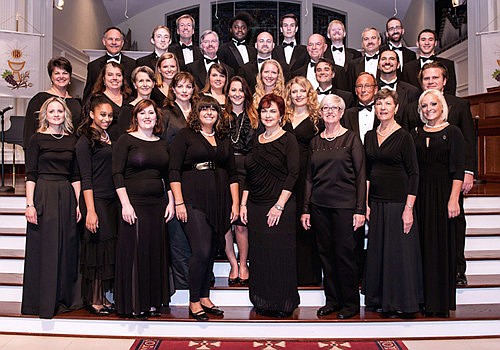- November 19, 2025
-
-
Loading

Loading

The bayfront isn’t the only thing resounding with patriotism this Fourth of July. Prior to the excitement (and an appropriate amuse-bouche to the fireworks show), Gloria Musicae will present its annual Patriotic Spectacular 4:30 p.m. Friday, July 4. It’s a concert featuring American-themed pieces including tributes to American composers of Broadway and the Great American Songbook — Harold Arlen and Leonard Bernstein.
But the highlight of the performance will be a Florida premiere of “One Land: An American Tapestry” — a piece by St. Petersburg composer Rand Snell. Snell sat down with Diversions to talk a little about his interesting background and the piece. Here’s what he had to say:
Tell us a little about your musical background:
Music composition is kind of like a third career. I’ve played piano since I was 4 years old — my mom was a piano teacher. I always wrote music as a kid and it became more formal in my 20s.
I had a career in politics and ran for Congress in the 13th congressional district in 1992. I worked for both Lawton Chiles and Bill Clinton, too.
In 2006, I came back to Florida (from Washington, D.C.) to study composition. I was 51-years old when I went back to school. I sort of did it for fun, but the professors of USF in Tampa really liked what I was doing and thought I should get a masters, and I thought, ‘Why not?’
What inspired “One Land: An American Tapestry”?
It demonstrates the breadth of heritage we have. It’s essentially an immigrant song. I include music from Spanish, Native Americans, African Americans, Chinese, etc … It has a lot of different sections of music that reflect the culture of all of these groups. It’s accessible — people could sing along if they wanted to …
You hear all of these little vignettes that tie the music together with the culture. For instance, when you hear the blues, you get the African American experience. When you hear Gershwin-esque elements of Ellis Island you hear Russian and Italian influence. It’s a combination of the culture and musical traditions that go along with them …
What’s the big take away?
I try to represent the main point: that we are all one country. We are all apart of this tapestry and no one has a monopoly on being a real American…
It expresses the universality of the American experience. America is an idea. This piece is optimistic; some might even say it’s kind of naive. But the idea is that this is still a land of opportunity — it’s still the ideal of America.